#Marley White
Text
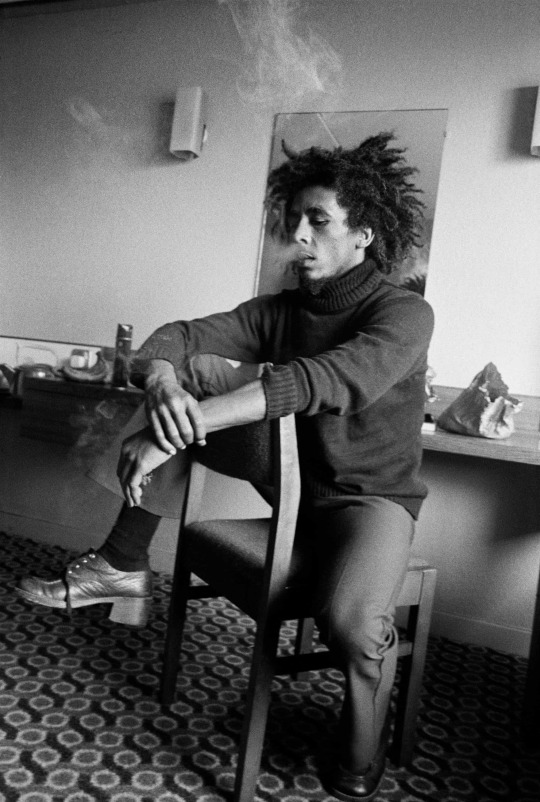
Bob Marley Backstage in Bournemouth, Dennis Morris, 1973
#bob marley#photography#vintage photography#vintage#black and white photography#dennis morris#smoking#1970s#1973#celebrity#music#black artists#artists of color#english#jamaican#100 notes#250 notes
461 notes
·
View notes
Text
Hawkeye and Frank are the two most diametrically opposed characters on Mash. They clash politically, ideologically, emotionally, intellectually, and even physically on more than one occasion. There is virtually nothing they agree on. But they do have one significant similarity: both Hawkeye and Frank are notably, pointedly effeminate.
Hawkeye is the central protagonist, so he's written to be likeable, even admirable, especially in the first five seasons of the show when satire dominated rather than character drama. He's the character who makes the correct political points and voices the show's ideology, and male audience members are encouraged to identify with him and aspire to be like him. He's witty, he's smart, he's charismatic, he dodges consequences a lot, he's highly skilled in his work, and he has a strong personality and natural leadership qualities.
Frank is the main antagonist up until the end of season five. He's written for audiences to hate him, mock him, and occasionally be horrified by him. He's dull-witted, incompetent, awkward, easily led and manipulated, and always gets his comeuppance. Few audience members are likely to aspire to be more like Frank Burns.
And yet, while most likeable protagonist/detestable antagonist duos in American popular media would also be differentiated in terms of gender performance as a matter of course - the effeminate villain being a standard stock character, always set against a ruggedly masculine hero - Mash takes a different approach.
From his core personality as a sniveling, weak-willed follower, to the way other characters, including Hawkeye, routinely make fun of him by comparing him to a woman or insinuating that he's gay, Frank Burns certainly fits the part of weak, emasculated villain. What's more interesting, and much less commonly seen in Hollywood media, is that Hawkeye is portrayed as just as unmanly, and just as, if not more prone to having it pointed out in the show.
Often Hawkeye's jokes at Frank's expense include the implication that Hawkeye is attracted to him himself, and not necessarily as "the man." He jokes, "Guess it's a marriage, Frank. I know I can do better, but at my age, can I wait?" in Hawkeye, Get Your Gun; he switches from calling Frank one of his vampire brides to taking the feminine part in post-coital pillow talk after siphoning his blood in Germ Warfare; he kisses or tells Frank to kiss him in Major Fred C. Dobbs, For the Good of the Outfit, and Bulletin Board, etc.
Other times, the jokes Hawkeye makes about himself are virtually identical to the jokes made at Frank's expense - their respective attractions to Margaret as a potentially dominant sexual partner, eg, with both Frank and Hawkeye portrayed as eagerly submissive. For instance, in 5 O'Clock Charlie Hawkeye jokes about tying Frank to Margaret's tent, then dismisses the thought with, "He'd probably love it. I know I would." And Hawkeye/Trapper and Frank/Margaret are sometimes paralleled as dual couples, Hawkeye and Frank usually being framed as the more feminine partner in each.
And of course, unconnected to Frank, there are many, many more examples of Hawkeye's effeminacy, both in jokes and in personality traits.
Hawkeye is a self-professed coward who is loud and proud about how terrified he is to be stuck in a war zone. He's emotionally open and highly empathetic, always willing to listen to others' problems and discuss (or scream about) his own. He abhors institutional violence and faces every enemy combatant with his hands firmly in the air. When authority is thrust upon him he strives to relinquish it, and uses it as little as possible.
More shallowly, he has little interest in sports and exercise, derides masculine hobby magazines like Field and Stream and Popular Mechanics, is incapable of performing mechanical tasks to the exasperation of others at least four times (Comrades in Arms which explicitly frames this emasculating, In Love and War, Patent 4077, and Hey, Look Me Over), mocks traditional masculinity in many ways, and enjoys musical theatre and Hollywood gossip. And he makes and takes literally hundreds of jokes about being unmanly and having sex with men himself, many more than he makes at Frank's expense.
But while the jokes are at Frank's expense and meant to belittle him, they're rarely made at Hawkeye's expense, especially in the first five seasons. Hawkeye doesn't make the jokes out of self-deprecation, he makes them out of pride and a desire to differentiate himself from the army men he's surrounded by. He's almost always in on the jokes others make about him, rather than offended - Potter telling him to file a paternity suit against his rival in Hepatitis makes him laugh delightedly, and Trapper's remarks on his effeminacy, such as Miz Hawkeye in Hot Lips and Empty Arms, are sometimes lightly teasing but always a regular aspect of their dynamic that Hawkeye enjoys playing up. Frank doesn't make any jokes directly mocking Hawkeye's masculinity that I can recall, beyond vague "pervert" and "degenerate" remarks, which, while often historically homophobic, in the show's context tend to be treated as a reference to his heterosexual endeavours.
Frank's effeminacy is a point of mockery and derision, but Hawkeye's is a point of pride, and not intended to make him any less likeable to an audience. Antagonists don't get to score points off of Hawkeye by mocking his feminine traits, but Hawkeye makes fun of Frank regularly by mocking his feminine traits.
This difference in framing can partially be explained by the nature of their respective gender performances.
While Hawkeye and Frank are both effeminate, they're effeminate in many opposite ways. Frank is weak-willed while Hawkeye is strong-willed. Frank is unappealing to most women, while Hawkeye is something of a lady's man. Frank cannot face his fears to rise to a challenge, but Hawkeye can. But on the flipside, Frank refuses to admit to fear while Hawkeye openly proclaims it. Frank strives to attain authority while Hawkeye refuses it or takes it on only begrudgingly. Frank is obsessed with guns to a freudian extent while one of Hawkeye's most famous monologues of the show is a speech about refusing to carry one. Frank worships the concept of traditional masculinity even while he can't perform it himself, while Hawkeye mocks the concept and would refuse to perform it even if he could.
The Sniper is an excellent case study of these contrasts. In this episode, Hawkeye is effeminate and at ease with it, while Frank is desperate to prove himself masculine. Frank and Margaret flirt with strong Freudian overtones while Frank shoots a gun while nearby Hawkeye flirts with with a nurse with a line about "tasting" her. Hawkeye connects with the nurse he's wooing by relating to how scared she is and huddling in fear with her, while Margaret demands that Frank prove his masculinity by going out and taking down the sniper himself. Frank carries a gun while trying to approach the sniper, while Hawkeye carries a white flag. Frank tries to make fun of Hawkeye for wanting to surrender, but he can't bring himself to approach the sniper while Hawkeye does.
This contrast of gender performance is a consistent aspect of Hawkeye and Frank's dynamic throughout the show, but The Sniper makes it a central theme so it's a useful example to show how their relationships to masculinity are a deliberate aspect of their dynamic.
And while Hawkeye makes fun of Frank's femininity, it's significant that he also regularly makes fun of Frank's masculinity - his love of guns (eg The Sniper), his sexual affairs (eg the exchange about Frank as a "fantastic performer" in Yankee Doodle Doctor), his numerous attempts to exert authority (eg Welcome to Korea), his desire for socially approved success (eg Hot Lips and Empty Arms), etc.
Both masculine and feminine sides of Frank are comprised of negative character traits, while Hawkeye embodies the best of both - emotional expression and healthy ways of coping by talking about his feelings; bravery but not machismo; intelligence and skill as a doctor rather than an officer; empathy and a willingness to listen; sexual prowess but largely through his love of foreplay rather than his dick game (which, in the context of the early 70s, is a somewhat feminine attribute that distinguishes him from a typical traditionally masculine man); etc.
Hawkeye demonstrates some of the most appealing and healthy qualities of both masculinity and femininity while Frank demonstrates, or strives to demonstrate, the more toxic qualities of both. Through including a few positive masculine traits in the mix, the narrative is able to depict Hawkeye as likeable, admirable, and desirable in his effeminacy while Frank is depicted as loathesome in his. Hawkeye gets one of many, many women in The Sniper by showing vulnerability, while Frank only appeals to Margaret, and Margaret is portrayed as borderline pathological in her sexual attraction to violent masculinity (the scene where Frank excites her with his gun, for example, also includes an electra complex joke, and there's a running rape kink gag in this episode as well).
Another aspect to consider when it comes to differentiating Hawkeye and Frank's respective femininities is hypocrisy. Similar to how Frank and Margaret's affair is mocked because they can't admit to it while Hawkeye and Trapper's affairs are glorified, part of what makes Frank's effeminacy so mock-worthy, while Hawkeye's feminine qualities are a source of pride and rebellion, is that Frank refuses to admit to them.
Frank desperately wants to be the ideal heroic army man and often play-acts the part, poorly. When Hawkeye mocks him by calling him a woman, for example, he's drawing attention to Frank's failure to live up to his own ideals. And when Hawkeye calls himself a woman, he's mocking those same ideals. The message is that Frank is pathetic not so much for failing to be traditionally masculine, but for wanting to be traditionally masculine at all.
Ultimately the ways Hawkeye and Frank perform masculinity and femininity are pointedly in opposition, from which masc and fem traits they embody, to how proudly they embody them. The show itself draws attention to these gendered similarities and differences between Frank and Hawkeye through a constant barrage of jokes, and even whole scenes and episodes. In this way the show portrays Frank as a hypocritical loser who wants to be masculine but fails to embody all but the worst traits, and Hawkeye as a cool, admirable guy who disdains the traditional pillars of masculinity and embraces his own effeminacy.
#mash#marley on mash#mash gen#mash gs#frank mash#hawkeye mash#since you guys liked that trapper gender meta a lot more than i thought you would here have another one#though this is written a little less formally lol#i have more examples of whole scenes that make these comparisons than just the sniper but i'm trying to keep this from being#even longer than it already is#but eg white gold is another good example wrt how they relate to flagg; yankee doodle doctor; army navy game; george; the gun; etc etc#(also it's interesting that when frank leaves hawkeye gets the pathetic loser portrayal more often... though i think that's a coincidence#the shift from early to late mash could be yet another essay on mash and gender lol)#long post
273 notes
·
View notes
Text
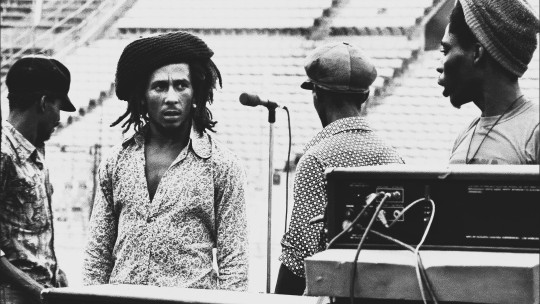
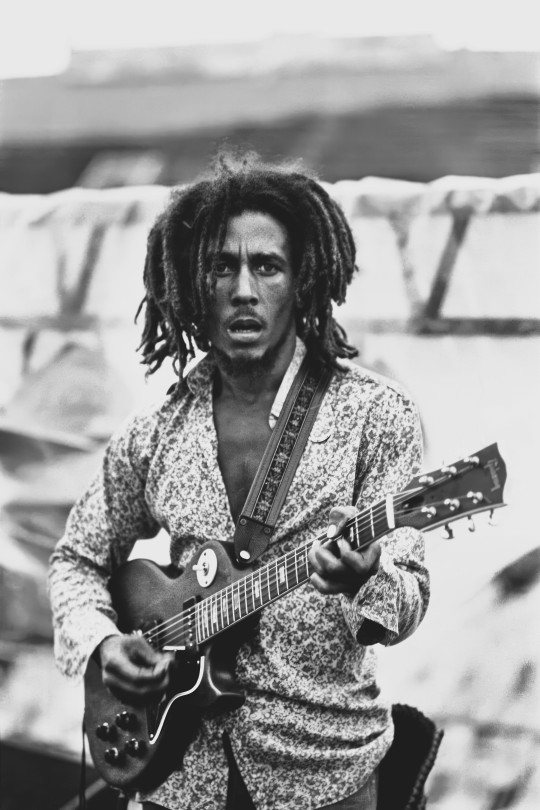
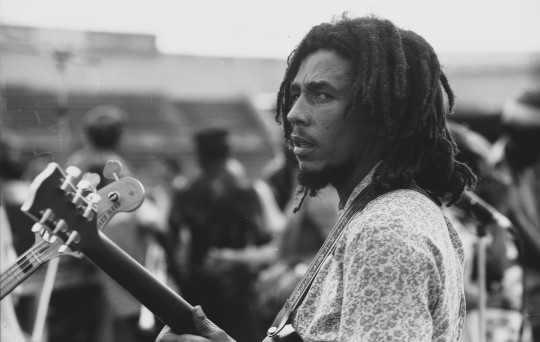
Bob Marley Getting Ready For The Wonder Dream Concert!
Bob Marley and The Wailers preforming a soundcheck a couple hours before the Wonder Dream concert would begin.
The event was a benefit concert to raise funds to help blind people. (Jamaican Institute For The Blind). They would end up receiving 23,000 dollars.
Photographer: Kwame Brathwaite
Location Of Photograph: National Stadium, Kingston, Jamaica. 10/04/1975
#bob marley#jamaica#reggae#music#live#70s#rare#rasta#jah#bob marley and the wailers#soundcheck#concert#black and white#black#african#rastafari#dreads#dreadlocks#1975#stevie wonder#musician#songwriter#singer#artist#roots#charity#photoset#photography#kingston#national stadium
106 notes
·
View notes
Text
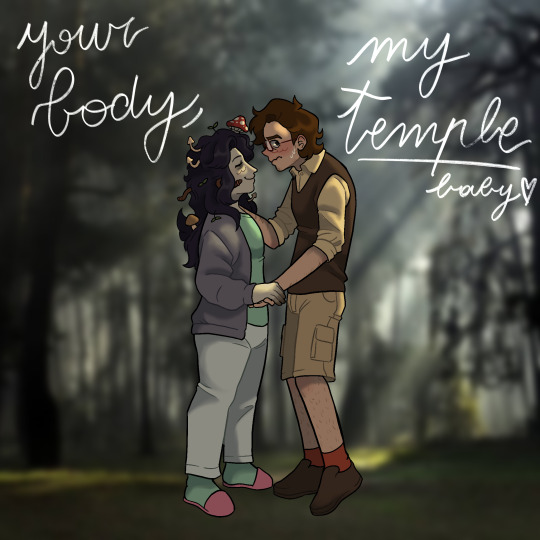
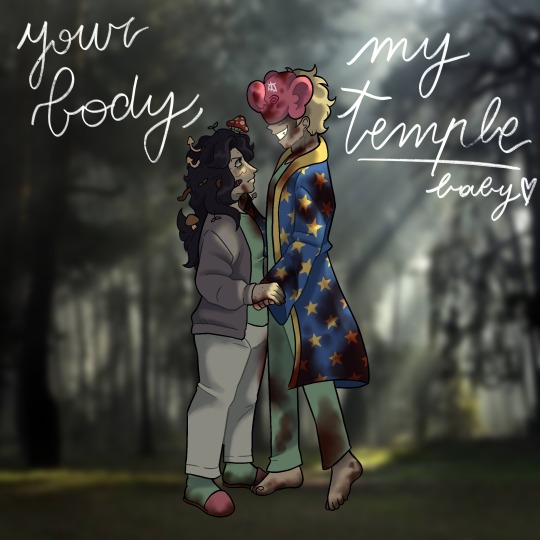
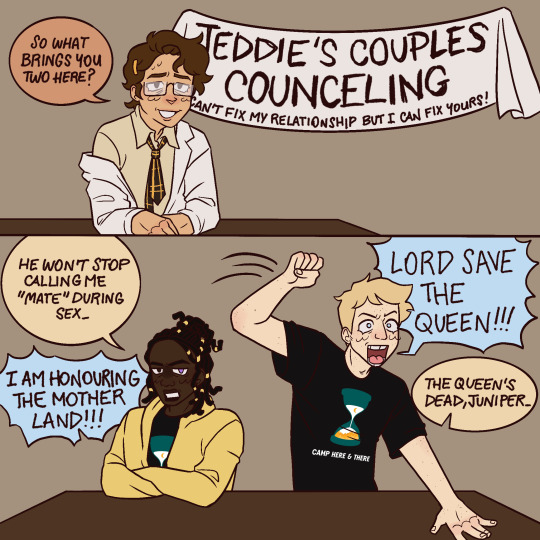

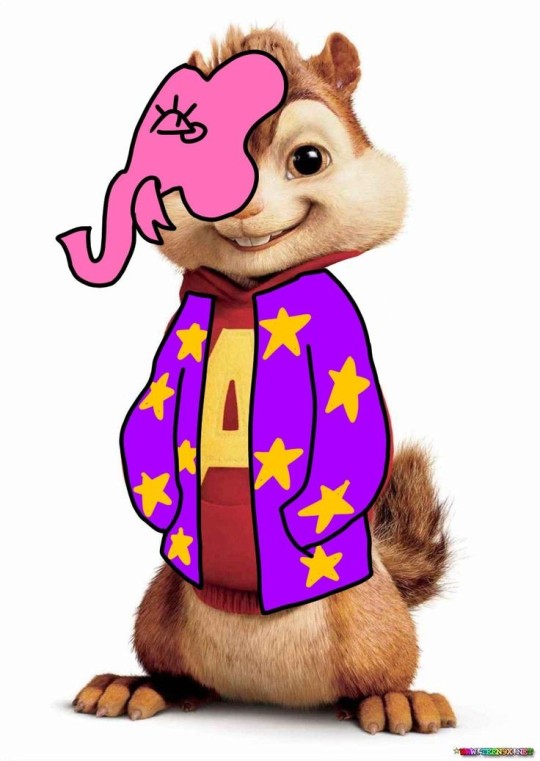
Please someone tell me this podcast has a fandom I'm losing my mind all alone in the woods in a wet cardboard box
Edit:
Apparently I made a GRAVE mistake in this. Marisol is much taller than salem!!! I did not. Know that!!!! Sorry lesbians
#art#artists on tumblr#camp here and there#will wood#sydney sargent#chnt jedidiah#chnt#chnt fanart#chnt art#elephant man#elijah volkov#rowan chow#juniper sloan#jeddie#rowen x juniper#salem de la marnierre#marisol yuchengco#joshua macheath#yvonne marley#do not talk to the white man in the woods#he will try to rizz you up#ugly russian fucker
521 notes
·
View notes
Text

Jamaica, Carribean
photography by @zoedargue https://zoedargue.com/
#Zoe Dargue Photography#zoe dargue#travel#travel photographer#jamaica#jamaika#caribbean#island#aesthetic#visit#glasgow photographer#original photography#film aesthetic#Black and White#vibrant#Bob Marley#reggae#rasta#vibe#vibes#candid#photoart#original photographers#photoblr#original photographers on tumblr#photographers on tumblr#Street Photography#photographers#photooftheday#trees
76 notes
·
View notes
Photo

Ekaterina Zueva by Sacha Leyendecker - MARLEY magazine
400 notes
·
View notes
Text
a music take so cold it’s over fifty years late, but if you don’t love bob marley at his i shot the sheriff you don’t deserve him at his one love/people get ready
#every so often i remember i’ve loved bob marley for my entire life#it’s my most stereotypical stoner trait even though my love for him predates being a stoner by about twenty years#also look everybody should listen to more bob don’t let the white boys with dreads put you off
17 notes
·
View notes
Text

#glee#gleeedit#santana lopez#marley rose#martana#4x08#episode: thanksgiving#season 4#place: auditorium#place: mckinley high#place: ohio#duo#white#grey#black#orange
24 notes
·
View notes
Text

Bob Marley, Shopping for the Trenchtown kids, Dennis Morris, 1973
#photography#vintage photography#vintage#black and white photography#bob marley#dennis morris#celebrity#1970s#1973#english#british#black british#black artists#artists of color#jamaican#kingston#jamaica
180 notes
·
View notes
Text

7 notes
·
View notes
Text







Bob Marley during an interview at the Barbizon Plaza Hotel. '75
Photographer: Fikisha Cumbo
Date: 1975-06-20
Location: Barbizon Plaza Hotel, NYC, USA.
#bob marley#70s#rare#reggae#rasta#music#jamaica#live#jah#the wailers#interview#rastafarian#rastafari#rastaman#locs#one love#dreads#dreadlocks#black#black and white#black and white photography#bw photography#Barbizon Plaza Hotel#nyc#vintage nyc#new york#usa#united states#1975#1970s
11 notes
·
View notes
Text


The PuNk Reggae Party . 🐐s ♾️ Anarchy Ovr Everything . 🤘🏻🅰️🧷




#john lydon#johnny rotten#sex pistols#bob marley#the wailers#the clash#post punk#punk#reggae#anarchy#public image ltd#jamaica#70s style#70s aesthetic#70s fashion#fyp#tumblr fyp#explore#black and white#Spotify#the damned
5 notes
·
View notes
Text
Little bit of a wierd post but if anyone is going to see Guardians of the galaxy 3 anytime soon maybe look up the triggers for that film. I will also happily tell you what happens if you pm me because its really horrible and everyone being rabbit lovers like myself i think it hits hard. 🖤🤍
All i could picture in that situation was my little happy buns and i was not okay.
He was happy to see me when i came home though 🤍🖤 the power of bunny snuggles 🥺🥰

And a picture of the goober because i know you love to see him 🥰🖤🤍
#i was SOBBING#no film has ever had me that upset not even hatchi or marley and me#guardians of the galaxy#guardians of the galaxy 3#mr babish#bunny#rabbit#bunblr#cute animals#bun bun#cute#cute rabbit#cute bunny#black and white#trigger warning
39 notes
·
View notes
Text
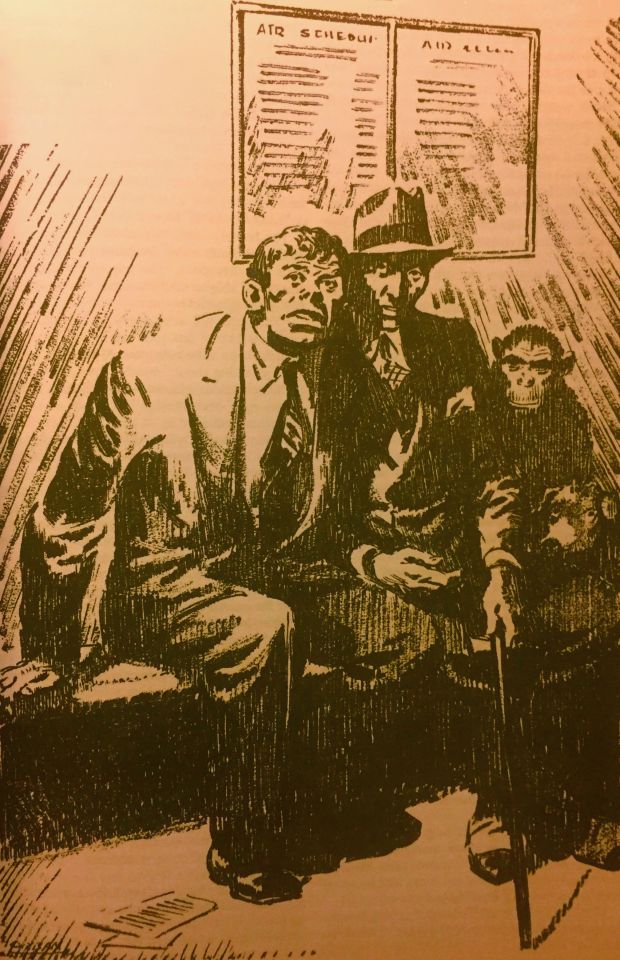
Two of Doc's crew (The Fabulous Five) - Monk, Ham, and Ham's pet chimp, Chemistry - from The All-White Elf, the story in the March, 1941 issue of Doc Savage.
#Doc Savage#The All-White Elf#Monk#Lieutenant Colonel Andrew Blodgett Mayfair#Ham#Brigadier General Theodore Marley Brooks#Chemistry
19 notes
·
View notes
Text
"Biopics of massively famous musicians are rarely very good, often because they stumble at the question of whom exactly they’re being made for. Are you making a movie for the already initiated die-hard fans yearning to see the life and times of their hero reflected back at them in exacting detail? Or is your movie a welcome mat for novices, a breezy jukebox of greatest hits aimed at cultivating new generations of fans, goosing streaming tallies and catalog sales in the process? Most musician biopics never manage to resolve this tension, in part because they’re usually also serving a third master, namely the musician’s estate, which tends to hold its own, very specific ideas about on-screen depiction.
Bob Marley: One Love, the new movie about the late reggae superstar that’s produced by Marley’s widow, Rita, along with some of his children, is a biopic that does seem to know whom it’s for, which isn’t a point in its favor. The film is directed by Reinaldo Marcus Green (King Richard) and stars Kingsley Ben-Adir as Marley, who does his best with the role despite not really looking or sounding much like the real Marley. (Within the past four years Ben-Adir has played Malcolm X, Barack Obama, and Bob Marley, quite the triptych of historical figures.) Lashana Lynch plays Rita and steals the film in every scene she’s in, even if the movie’s script fails to elevate her character past the archetypical suffering-yet-supportive wife of a genius.
Rather than taking a cradle-to-grave approach to Marley’s life, One Love instead focuses on a single period of Marley’s career, his self-imposed exile to England in the aftermath of the 1976 attempt on his life at his home in Kingston, during which time he recorded Exodus, the 1977 LP that marked his full breakthrough into global superstardom. The film opens with the assassination attempt, after which we’re quickly whisked to London, where the film depicts Marley writing most of Exodus’ songs in a cloying series of “eureka!” moments that tend to populate movies of this kind. Snippets of Marley’s classic “Redemption Song” surface as a recurring musical motif in the film, and in one of the last scenes, we see Marley performing the song for his awestruck family in a sappy flourish that’s also anachronistic. (By most accounts, Marley didn’t write “Redemption Song” until 1979.) Periodically we’re treated to a series of flashbacks of the singer’s earlier life, a clichéd device that this movie could have used more of: Brief forays into Marley’s conversion to Rastafarianism are surprisingly well done, and a scene of a teenage Marley and the Wailing Wailers performing “Simmer Down” at Coxsone Dodd’s Studio One is the best moment in the film.
One Love is an inspirational tale about a Great Man who used music to unite the world, one that reduces one of the most consequential and complicated artists of the 20th century to a walking fount of genial aphorisms, the guy who suggested we all get together and feel all right. As such, the film indulges a decadeslong public appetite for a particular imagining of Marley that his estate now seems depressingly eager to feed. It’s been 42 years since Marley died of a rare form of melanoma at age 36, and I’m not sure there’s a musician who’s more literally iconic: Go to any commercial district in any part of the world and within minutes you’ll find an opportunity to buy something bearing Marley’s likeness. In the United States, Marley has been a staple of dorm-room walls for generations: The casual and underinformed co-optation of Marley by American bro culture has even inspired a recurring meme in which Marley’s name is erroneously affixed to an image of Jimi Hendrix.
To a certain brand of musical cynic, Marley has become the embodiment of a musician whom people own posters and T-shirts of but don’t actually listen to, which isn’t totally fair to most of the owners of those posters and T-shirts. Some of Marley’s music is still enormously popular: His 1984 greatest hits compilation Legend is currently enjoying its 820th week on the Billboard 200, a position it will likely maintain for the foreseeable future given One Love’s early, strikingly robust box-office projections. The only album that’s spent longer on the chart is Pink Floyd’s Dark Side of the Moon.
But in the pop-cultural imagination, Legend has completely eclipsed everything else Marley ever released. The album has sold more than 15 million copies in the United States alone, while no other Marley LP has sold even 1 million stateside. From a purely mathematical standpoint, this would indicate that for many fans, Legend is the first and only Marley album they’ll ever listen to. I’m not sure there’s another greatest hits compilation that has played such an outsize role in the public definition of an artist.
Legend is a fine little collection, but the idea that it’s some sort of one-stop synopsis of Marley’s career is absurd. For starters, 10 of its 14 tracks date from the period of 1977–80, a four-year time frame that represents the height of Marley’s global popularity but is a relatively minuscule cross section of a staggeringly prolific, nearly two-decade-long recording career. (Five of Exodus’ 10 tracks are included on Legend, which I suspect is one reason that One Love is so invested in the album’s significance.)
This period also coincides with a time when Marley’s music seemed to take a step back from revolutionary politics, a tack that may have been driven at least in part by the aforementioned assassination attempt. The Marley canonized on Legend is not the Marley who sang “I feel like bombin’ a church/ Now that you know that the preacher is lyin’ ” or who called for “burnin’ and a-lootin’ tonight … burnin’ all illusion tonight” or declared that “Rasta don’t work for no CIA.” The dominance of Legend in the U.S. is particularly striking when one considers that Marley’s highest-selling album in this country during his lifetime was 1976’s Rastaman Vibration, which peaked at No. 8 on the Billboard 200 and includes such overtly political tracks as “Crazy Baldhead,” “Rat Race,” and “War.” Legend doesn’t include a single track from Rastaman Vibration, instead opting for romantic fare like “Is This Love” and “Waiting in Vain” and feel-good anthems like “One Love/People Get Ready” and “Jamming.” (For an excellent deep dive into the history and legacy of Legend, I recommend this article from the Ringer earlier this week.)
One Day’s Director Has No Regrets About the Movie’s Controversial Ending
Legend’s preeminence has helped turn Marley into the musical equivalent of a tourist destination, at which One Love is just one more cozy attraction. This is worse than a shame, because the real Bob Marley was one of the most remarkable musical talents of the 20th century. As a songwriter, he was so prolific that music seemed to pour out of him, a quality that has sometimes led to a naturalization of his gifts that veers into exoticizing primitivism. (One Love certainly partakes in this.) But rather than being some carefree savant, Marley was a fiercely disciplined and ambitious artist from the very beginning. He wrote and recorded his first single, “Judge Not,” in 1962 at the age of 16, and it remains an astonishing debut, an effortlessly catchy melody sung by a voice that sounds both nervous and supremely confident in a way that only a teenager can manage.
By the time he signed to Island Records in 1972 and began his ascent to international superstardom, Marley had already written a lifetime’s worth of great songs. He had a preternatural ear for hooks and crafted songs that were ready-made hit records, three-minute gems of perfectly crystalized musical ideas. As a singer, his indelible tenor rasp and thrillingly improvisational style were the byproducts of an extraordinarily well-honed sense of intonation and time. And during the 1970s, he fronted what might have been the best band on the face of the earth, grounded in the peerless rhythm section of drummer Carlton Barrett and bassist Aston “Family Man” Barrett, the latter of whom died earlier this month at age 77. (Aston’s son and namesake, an accomplished musician in his own right, plays his father in the film.)
One Love doesn’t know how to begin exploring this artist and his art in any way that even begins to be interesting. Instead it just feeds back the same sanitized and saccharine idea of Bob Marley to the same audience who has been eating that up for generations. It’s a movie about a poster. Over the end credits of One Love, archival performance clips of Marley flash onto the screen, and for a few moments we’re treated to sounds and images that are infinitely more magnetic and thrillingly alive than anything we’ve seen over the preceding 100-ish minutes. That Bob Marley, and the extraordinary body of music he left behind, is still out there for those who go listening for it, but this movie isn’t where you’ll find him."

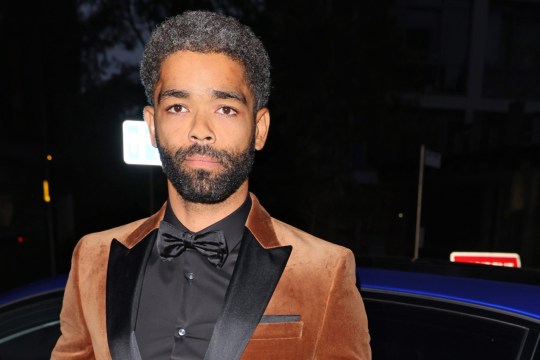
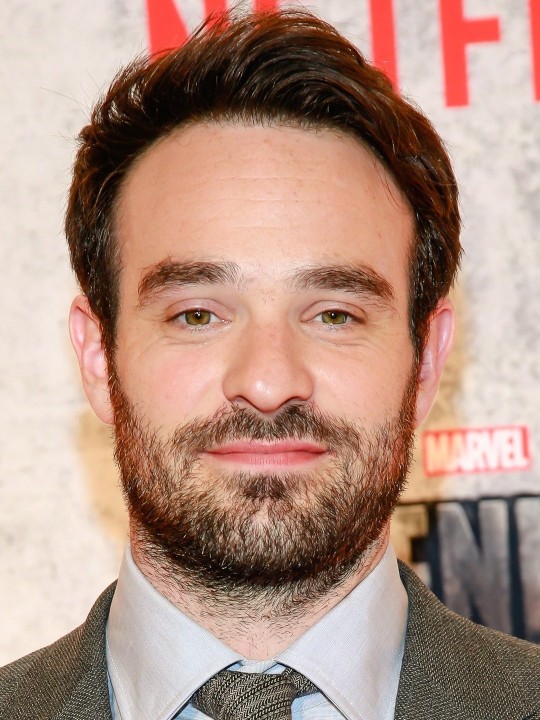
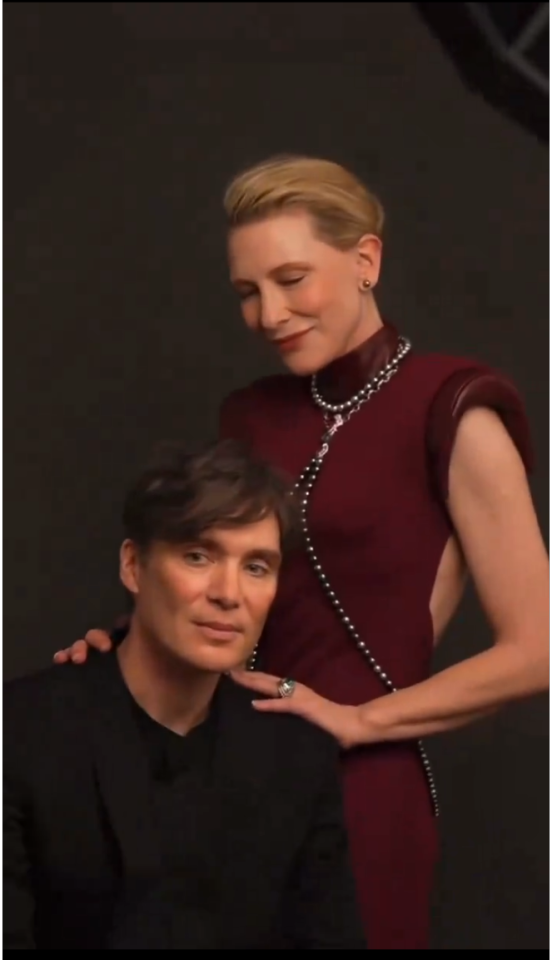
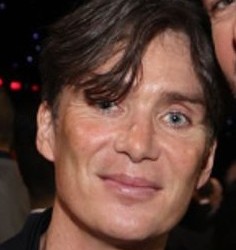

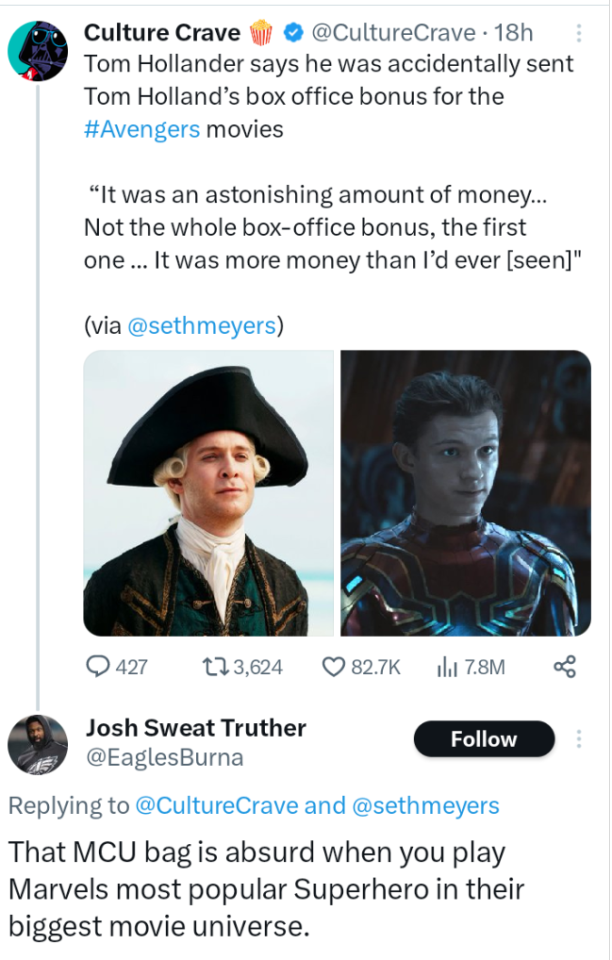
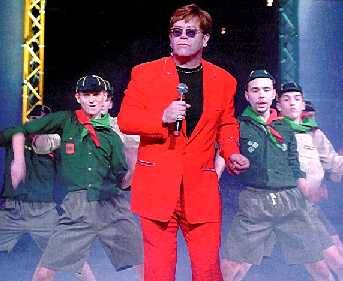
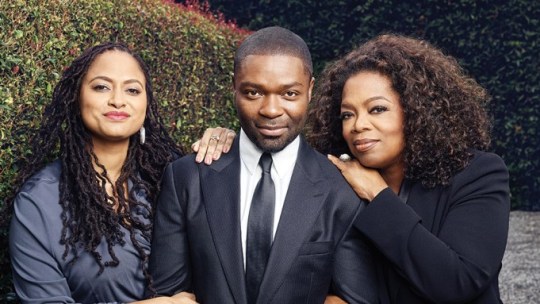
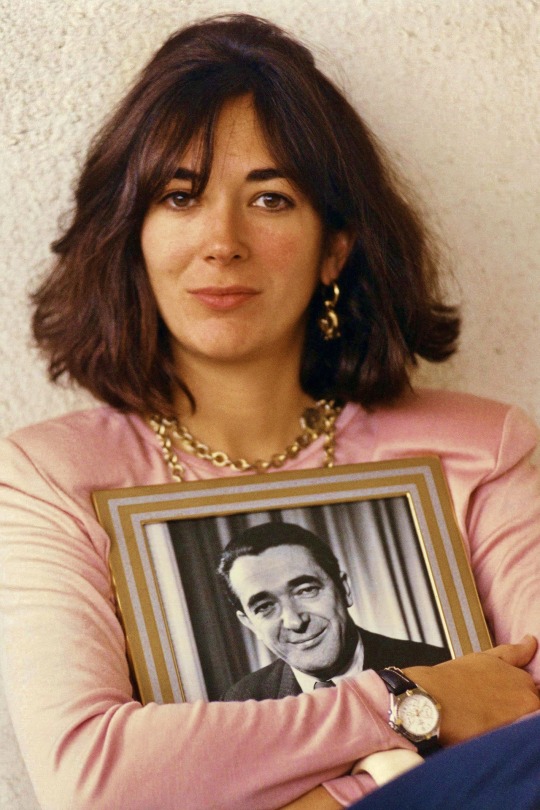
#Jamaica and The Legendary Marley Family Sell Patriarch Bob Marley Down The River For Weak Tepid White Washed One Love#Starring British Lavender Mafia Boy Kingsley Ben Adir#Irish Mob#Corrupt British Film Industry#British Thugs Allowed To Play Historic Black Figures#Malcolm X#Barack Obama#Hollywood Gay Mafia Connections#Scientology#Sony Pictures David Geffen#Warner Bros#David Zaslav#IAC#Barry Diller#Kingsley Ben Adir#David Oyelowo#Tom Hollander#Kristen Stewart#Elton John#Cillian Murphy#Stephen Fry#Mark Gatiss#Capote and The Swans Star Used In Threat Against Spiderman Star Tom Holland#British Parliament#BBC#ITV#Jamaica Compromised#Charlie Cox#Daredevil
7 notes
·
View notes
